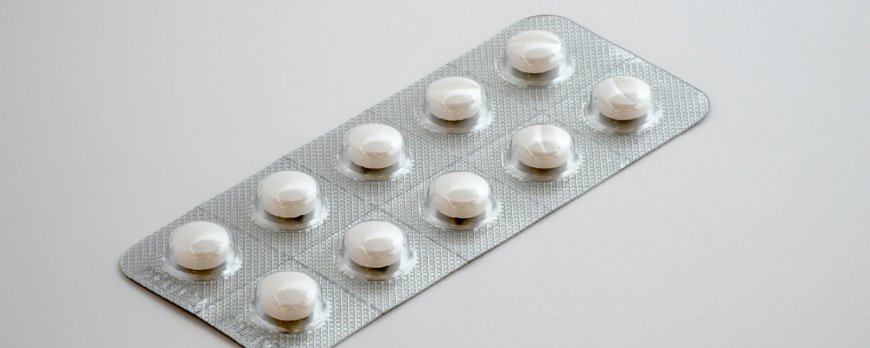Identifying a need for CoQ10
Explore our guide on identifying a need for CoQ10, decoding its importance, and understanding when your body may require this enzyme boost.

Identifying a Need for CoQ10
Coenzyme Q10 (CoQ10) plays a crucial role in various bodily functions, and understanding the signs of deficiency can help identify when supplementation may be necessary. CoQ10 is a commonly available dietary supplement that is recommended by healthcare providers for various medical conditions. It is associated with decreased levels of CoQ10, so supplementation may be beneficial for individuals with neurodegenerative diseases, fibromyalgia, diabetes, cancer, mitochondrial diseases, muscular diseases, and heart failure. Researchers hypothesize that statin drugs, which are known to deplete CoQ10, may contribute to muscle pain and cramping as a side effect.
CoQ10 supplementation has shown potential benefits in reducing symptoms and major adverse cardiovascular events in patients with heart failure, improving endothelial function in heart failure and diabetes patients, decreasing pain and fatigue in individuals with fibromyalgia, and improving erectile function in men with Peyronie disease. Studies have also suggested a potential role for CoQ10 in migraine prevention and depression treatment in patients with bipolar disorder. However, CoQ10 supplementation is not necessary for everyone and should be considered based on individual needs and a consultation with a healthcare provider.
Common food sources of CoQ10 include oily fish, eggs, nuts, chicken, organ meats, and whole grains. CoQ10 supplements are generally well-tolerated, but mild side effects such as stomach upset, nausea, vomiting, diarrhea, and mild insomnia can occur. It is important to discuss the use of CoQ10 supplements with a healthcare provider, especially for individuals with underlying health conditions or who are taking other medications. The safety and optimal dosage of CoQ10 supplements are still being researched, and the effectiveness of CoQ10 supplementation in combination with statin drugs requires further investigation.
Key Takeaways:
- CoQ10 plays a crucial role in various bodily functions
- Supplementation may be necessary for individuals with specific medical conditions
- Statin drugs can deplete CoQ10 levels in the body
- CoQ10 supplementation has shown potential benefits for heart health, fibromyalgia, and erectile function
- Discuss the use of CoQ10 supplements with a healthcare provider

Exploring CoQ10's Importance and Role in the Body
CoQ10 is essential for energy production within cells and is particularly vital for the proper functioning of the heart. This compound, also known as Coenzyme Q10, plays a crucial role in the electron transport chain, which is responsible for generating adenosine triphosphate (ATP), the primary source of cellular energy. Without sufficient CoQ10 levels, the body may experience a decline in energy production, leading to fatigue, weakness, and a decreased ability to carry out daily activities.
In addition to its importance for energy production, CoQ10 also plays a key role in maintaining heart health. The heart is one of the most energy-demanding organs in the body, requiring a constant and steady supply of ATP to function properly. CoQ10 acts as an antioxidant, protecting the heart against oxidative stress and promoting cardiovascular health. Studies have shown that CoQ10 supplementation may help improve heart function, reduce the risk of major adverse cardiovascular events, and enhance endothelial function in individuals with heart failure and diabetes.
H3: Exploring the Link Between CoQ10 and Heart Health
Further research is needed to fully understand the mechanisms through which CoQ10 supports cardiovascular health. However, the available evidence suggests that adequate CoQ10 levels are essential for the proper functioning of the heart and the maintenance of overall cardiovascular well-being. Individuals with heart conditions or those at risk of heart disease may benefit from discussing CoQ10 supplementation with their healthcare provider to determine if it is suitable for their specific needs.
Decoding CoQ10 Deficiency Symptoms
Identifying the signs of low CoQ10 levels can help individuals understand if their body requires additional supplementation. While CoQ10 deficiency is not always easy to diagnose, there are certain symptoms that may indicate a potential deficiency. It is important to note that these symptoms are non-specific and can be attributed to other health conditions as well, so it is recommended to consult with a healthcare provider for an accurate diagnosis.
Here are some common signs and symptoms that may suggest low CoQ10 levels:
- Chronic fatigue or low energy levels
- Muscle weakness or pain
- Difficulty in concentrating or brain fog
- Mood swings or depression
- Frequent headaches or migraines
- High blood pressure
- Insomnia or sleep disturbances
If you experience any of these symptoms and suspect a CoQ10 deficiency, it is advisable to discuss your concerns with a healthcare provider. They can perform the necessary tests to confirm the deficiency and recommend appropriate measures, which may include CoQ10 supplementation.

Benefits of CoQ10 Supplementation
CoQ10 supplementation has been linked to numerous health benefits, making it a valuable addition for those with specific medical conditions. Research suggests that CoQ10 may have a positive impact on several areas of health, including heart function, energy production, and overall well-being.
Heart Health:
One of the primary benefits of CoQ10 supplementation is its potential to support heart health. CoQ10 is involved in energy production within the heart cells, which is crucial for maintaining optimal cardiac function. Studies have shown that CoQ10 supplementation may help reduce symptoms and major adverse cardiovascular events in patients with heart failure, as well as improve endothelial function in individuals with heart failure and diabetes.
Fibromyalgia and Muscular Diseases:
Individuals with fibromyalgia often experience debilitating pain and fatigue. CoQ10 supplementation has shown promise in reducing these symptoms, potentially improving overall quality of life. Additionally, CoQ10 supplementation may be beneficial for individuals with muscular diseases, as it is involved in energy production and muscle function.
Neurodegenerative Diseases:
CoQ10 has antioxidant properties, which can help protect cells from oxidative damage. This is particularly relevant for individuals with neurodegenerative diseases, such as Parkinson's disease and Alzheimer's disease, where oxidative stress plays a role in disease progression. While further research is needed, CoQ10 supplementation has shown potential in supporting brain health and function.
It's important to note that CoQ10 supplementation is not necessary for everyone and should be considered based on individual needs and consultation with a healthcare provider. Additionally, the safety and optimal dosage of CoQ10 supplements are still being researched. If you are considering CoQ10 supplementation, it is recommended to discuss it with your healthcare provider, especially if you have underlying health conditions or are taking other medications.
Overall, CoQ10 supplementation may offer a range of potential health benefits, particularly for individuals with specific medical conditions. However, it is always best to consult with a healthcare professional before starting any new supplement regimen to ensure safety and efficacy.
Natural Sources of CoQ10
Incorporating certain foods into your diet can help increase your CoQ10 levels naturally. Coenzyme Q10 (CoQ10) is found in various dietary sources, particularly in certain types of foods.
Foods Rich in CoQ10
- Oily fish: Salmon, trout, and sardines are excellent sources of CoQ10. Consuming these fatty fish regularly can boost your CoQ10 levels.
- Eggs: The yolk of an egg contains CoQ10, making it a convenient and accessible source. Including eggs in your diet can contribute to your CoQ10 intake.
- Nuts: Almonds and peanuts are among the nuts that contain CoQ10. Snacking on these nutrient-rich nuts can provide you with additional CoQ10.
- Chicken: The breast and thigh meat of chicken are good sources of CoQ10. Incorporating chicken into your meals can enhance your CoQ10 intake.
- Organ meats: Liver, kidney, and heart are organ meats that contain significant amounts of CoQ10. Including these meats in your diet can help increase your CoQ10 levels.
- Whole grains: Whole grains such as wheat germ and brown rice contain CoQ10. Opting for whole grain products can contribute to your CoQ10 intake.
While these foods can provide CoQ10 naturally, it's important to note that the amount of CoQ10 in each food source can vary. Additionally, factors such as cooking methods and food processing can affect the CoQ10 content. Therefore, it's advisable to consume a varied diet that includes these foods to ensure a sufficient intake of CoQ10.
Remember to consult with a healthcare provider before making any significant dietary changes or considering CoQ10 supplementation, especially if you have underlying health conditions or are taking medications. Your healthcare provider can provide personalized guidance based on your specific needs and help you determine the most appropriate approach for maintaining optimal CoQ10 levels.
Understanding CoQ10 and Antioxidants
CoQ10 acts as an antioxidant, working synergistically with other antioxidants to protect cells from oxidative damage. Antioxidants play a crucial role in neutralizing harmful free radicals that can cause cellular damage and contribute to various health conditions. As a powerful antioxidant, CoQ10 helps to reduce oxidative stress and support overall cellular health.
Research suggests that CoQ10's antioxidant properties may have a beneficial effect on several health conditions. For example, studies have shown that CoQ10 supplementation may help reduce oxidative stress in individuals with neurodegenerative diseases, such as Parkinson's disease and Alzheimer's disease. Additionally, CoQ10 has been investigated for its potential role in preventing or alleviating symptoms in conditions associated with oxidative stress, such as fibromyalgia and diabetes.
Taking CoQ10 with Other Antioxidants
Combining CoQ10 supplementation with other antioxidants, such as vitamins C and E, may enhance their overall antioxidant effects. When antioxidants work together, they can have a synergistic effect, providing greater protection against oxidative damage. This combination may be particularly beneficial for individuals who have increased oxidative stress due to certain medical conditions or lifestyle factors.
It is important to note that while CoQ10 and other antioxidants can support cellular health, they should not be seen as a substitute for a healthy, balanced diet rich in fruits, vegetables, and other natural sources of antioxidants. Consuming a variety of antioxidant-rich foods and considering supplementation as needed can help ensure an adequate intake of these essential nutrients.

CoQ10 and Aging
As we age, our CoQ10 levels naturally decline, and understanding its impact on aging can help individuals make informed choices about supplementation. Coenzyme Q10, commonly known as CoQ10, plays a crucial role in energy production within our cells. It functions as a powerful antioxidant, protecting our cells from damage caused by free radicals. CoQ10 also supports optimal heart function and helps maintain healthy blood pressure levels.
Research suggests that declining CoQ10 levels may contribute to age-related conditions and the overall aging process. Low levels of CoQ10 have been associated with increased oxidative stress, which can lead to cellular damage and accelerated aging. By supplementing with CoQ10, individuals may be able to support their cellular energy production, reduce oxidative stress, and potentially slow down the aging process.
The Potential Benefits of CoQ10 Supplementation:
- Supports heart health and cardiovascular function
- Enhances energy production and reduces fatigue
- Acts as a potent antioxidant, protecting cells from damage
- May help reduce the risk of neurodegenerative diseases
- May improve skin health and reduce the appearance of wrinkles
While CoQ10 is naturally produced by the body and can be obtained through certain dietary sources, supplementation may be necessary to maintain optimal levels, especially as we age. It is important to note that the ideal dosage and effectiveness of CoQ10 supplementation for aging individuals are still being researched, and consulting with a healthcare provider is advised to determine individual needs and potential interactions with other medications or underlying health conditions.
In conclusion, as we age, our CoQ10 levels decline, which can have an impact on our overall health and well-being. Supplementation with CoQ10 may offer potential benefits in supporting heart health, energy production, and combating oxidative stress. However, it is essential to consult with a healthcare provider before starting any supplement regimen, as they can provide personalized guidance and ensure its safety and suitability for individual needs.
Safety and Considerations of CoQ10 Supplementation
While CoQ10 supplements are generally well-tolerated, it is important to be aware of potential interactions with other medications, especially statin drugs. As statins are commonly prescribed for managing cholesterol levels, they have been found to deplete CoQ10 levels in the body. This depletion may contribute to muscle pain and cramping, which are common side effects of statin use. Therefore, individuals taking statin drugs may benefit from CoQ10 supplementation to support their CoQ10 levels.
If you are considering CoQ10 supplementation, it is crucial to consult with your healthcare provider, particularly if you have any underlying health conditions or are taking other medications. Your healthcare provider can determine the appropriate dosage of CoQ10 for your specific needs and provide guidance on potential interactions with other medications.
When it comes to CoQ10 supplements, it is essential to choose a reputable brand that follows good manufacturing practices. Look for supplements that are certified by third-party organizations to ensure quality and safety. While mild side effects such as stomach upset, nausea, vomiting, diarrhea, and mild insomnia can occur, they are generally rare and transient.

Key considerations for CoQ10 supplementation:
- Consult with your healthcare provider before starting CoQ10 supplementation, especially if you have underlying health conditions or are taking other medications.
- Choose a reputable brand that follows good manufacturing practices and is certified by third-party organizations.
- Be aware of potential interactions with other medications, particularly statin drugs, and discuss these with your healthcare provider.
- Monitor for any potential side effects, although they are generally rare and mild.
By being knowledgeable about the safety considerations and potential interactions of CoQ10 supplementation, you can make informed decisions and ensure the best results for your health and well-being.
Conclusion
Identifying a need for CoQ10 and understanding its potential benefits can help individuals make informed decisions about incorporating supplementation into their overall health routine. Coenzyme Q10 (CoQ10) is a commonly available dietary supplement recommended by healthcare providers for various medical conditions. It is associated with decreased levels of CoQ10, so supplementation may be beneficial for individuals with neurodegenerative diseases, fibromyalgia, diabetes, cancer, mitochondrial diseases, muscular diseases, and heart failure.
Research suggests that CoQ10 supplementation may have several positive effects on cardiovascular health. Studies have shown potential benefits in reducing symptoms and major adverse cardiovascular events in patients with heart failure, as well as improving endothelial function in heart failure and diabetes patients. Additionally, CoQ10 supplementation has been found to decrease pain and fatigue in individuals with fibromyalgia and improve erectile function in men with Peyronie's disease.
CoQ10 can also be obtained through natural dietary sources such as oily fish, eggs, nuts, chicken, organ meats, and whole grains. However, supplementation may be necessary in some cases, especially for individuals with underlying health conditions or those taking other medications. It is important to discuss the use of CoQ10 supplements with a healthcare provider to determine the appropriate dosage and ensure compatibility with other treatments.
While CoQ10 supplementation is generally well-tolerated, mild side effects such as stomach upset, nausea, vomiting, diarrhea, and mild insomnia can occur. It is essential to be aware of these potential risks and monitor any changes or adverse reactions while taking CoQ10 supplements. Ongoing research is being conducted to establish the optimal dosage and safety considerations of CoQ10, particularly in combination with statin drugs, which have been found to deplete CoQ10 levels in the body.
FAQ
What are the benefits of CoQ10 supplementation?
CoQ10 supplementation has shown potential benefits in reducing symptoms and major adverse cardiovascular events in patients with heart failure, improving endothelial function in heart failure and diabetes patients, decreasing pain and fatigue in individuals with fibromyalgia, and improving erectile function in men with Peyronie disease. Studies have also suggested a potential role for CoQ10 in migraine prevention and depression treatment in patients with bipolar disorder.
What are the common food sources of CoQ10?
Common food sources of CoQ10 include oily fish, eggs, nuts, chicken, organ meats, and whole grains.
Are there any side effects of CoQ10 supplementation?
CoQ10 supplements are generally well-tolerated, but mild side effects such as stomach upset, nausea, vomiting, diarrhea, and mild insomnia can occur.
Is it necessary for everyone to take CoQ10 supplements?
CoQ10 supplementation is not necessary for everyone and should be considered based on individual needs and a consultation with a healthcare provider.
Are there any interactions between CoQ10 supplements and other medications?
It is important to discuss the use of CoQ10 supplements with a healthcare provider, especially for individuals with underlying health conditions or who are taking other medications.
What is the optimal dosage of CoQ10 supplements?
The safety and optimal dosage of CoQ10 supplements are still being researched.
Can CoQ10 supplementation be used in combination with statin drugs?
The effectiveness of CoQ10 supplementation in combination with statin drugs requires further investigation.





























































































































